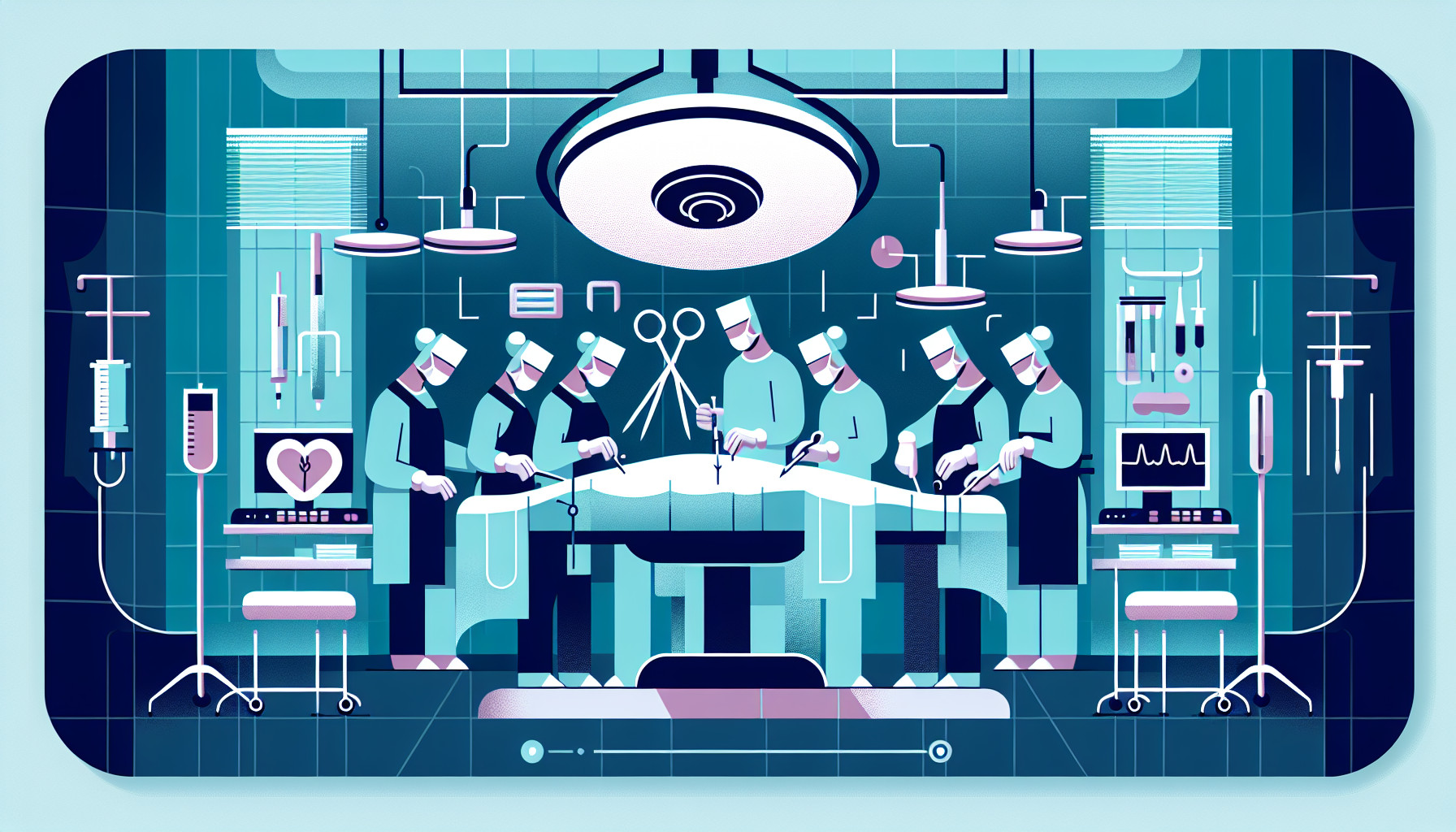Our Summary
This research paper looks at the effect of using antibiotics before surgery to prevent infections after surgery in patients who have had a septoplasty. A septoplasty is a type of surgery done to correct a deviated septum - a condition where the bone and cartilage dividing the nasal cavity of the nose is off-center or crooked.
The study found that giving patients antibiotics before and/or after the surgery significantly reduced the rate of infections compared to not giving antibiotics. For those who got the antibiotics, only 3.3% got an infection while 12.7% of those who didn’t get the antibiotics got an infection.
The research also showed that for patients who had additional nose surgery along with the septoplasty, the antibiotics were particularly effective in preventing infections.
In conclusion, the research suggests that giving antibiotics before the surgery can significantly reduce the risk of getting an infection and unplanned visits to the doctor after the surgery.
FAQs
- What is a septoplasty and why might someone need one?
- How can the risk of post-operative infection be reduced in patients undergoing a septoplasty?
- What impact do antibiotics have on patients who have additional nose surgery along with septoplasty?
Doctor’s Tip
Therefore, a helpful tip a doctor might give to a patient about septoplasty is to follow their prescribed antibiotic regimen before and after the surgery to help prevent infections and ensure a successful recovery. It is important to take the antibiotics exactly as directed by the doctor to maximize their effectiveness and minimize the risk of complications. Additionally, patients should follow all post-operative care instructions provided by their healthcare provider to promote healing and optimize the results of the surgery.
Suitable For
Patients who are typically recommended septoplasty are those who have symptoms of a deviated septum such as difficulty breathing through the nose, nasal congestion, frequent nosebleeds, and sinus infections. These symptoms can significantly impact a person’s quality of life and may not improve with non-surgical treatments such as medications or nasal sprays.
Additionally, patients who have a deviated septum that is causing other issues such as sleep apnea, snoring, or chronic sinusitis may also be recommended for septoplasty. Patients who have suffered trauma to the nose or have a congenital deformity of the nasal septum may also benefit from septoplasty.
Overall, septoplasty is recommended for patients who have a deviated septum that is causing significant symptoms or other related issues, and who have not found relief from conservative treatments.
Timeline
Before septoplasty:
- Patient experiences symptoms of a deviated septum such as difficulty breathing through the nose, nasal congestion, frequent nosebleeds, and snoring.
- Patient consults with an ENT specialist who recommends septoplasty to correct the deviated septum.
- Pre-operative tests and evaluations are conducted to ensure the patient is a suitable candidate for surgery.
- Patient is advised to stop taking certain medications and to refrain from eating or drinking for a specific period before the surgery.
After septoplasty:
- Patient undergoes septoplasty surgery, which typically takes 1-2 hours and is performed under general anesthesia.
- Patient may experience pain, swelling, and bruising around the nose and eyes in the days following the surgery.
- Patient is advised to rest and avoid strenuous activities for a period of time after the surgery.
- Follow-up appointments are scheduled to monitor the healing process and remove any packing or splints placed in the nose during surgery.
- Patient may be prescribed pain medication, nasal sprays, and antibiotics to help with pain management and prevent infections.
- Patient gradually resumes normal activities and experiences improved breathing and reduced symptoms of a deviated septum.
What to Ask Your Doctor
Some questions a patient should ask their doctor about septoplasty include:
- Will I need to take antibiotics before and/or after the surgery to prevent infections?
- What are the potential risks and complications associated with septoplasty?
- How long is the recovery period and what can I expect during the recovery process?
- Will I need to follow any specific post-operative care instructions?
- What are the expected outcomes of the surgery in terms of improving my breathing and nasal congestion?
- Are there any alternative treatment options to consider?
- How many septoplasty surgeries have you performed and what is your success rate?
- What is the likelihood of needing additional nose surgery in conjunction with the septoplasty?
- How soon after the surgery can I resume normal activities, such as work or exercise?
- Are there any specific signs or symptoms I should watch for that may indicate a complication or infection after the surgery?
Reference
Authors: Kotisalmi I, Hytönen M, Mäkitie AA, Lilja M. Journal: Eur Arch Otorhinolaryngol. 2022 Jul;279(7):3449-3458. doi: 10.1007/s00405-021-07113-9. Epub 2021 Oct 15. PMID: 34652525
